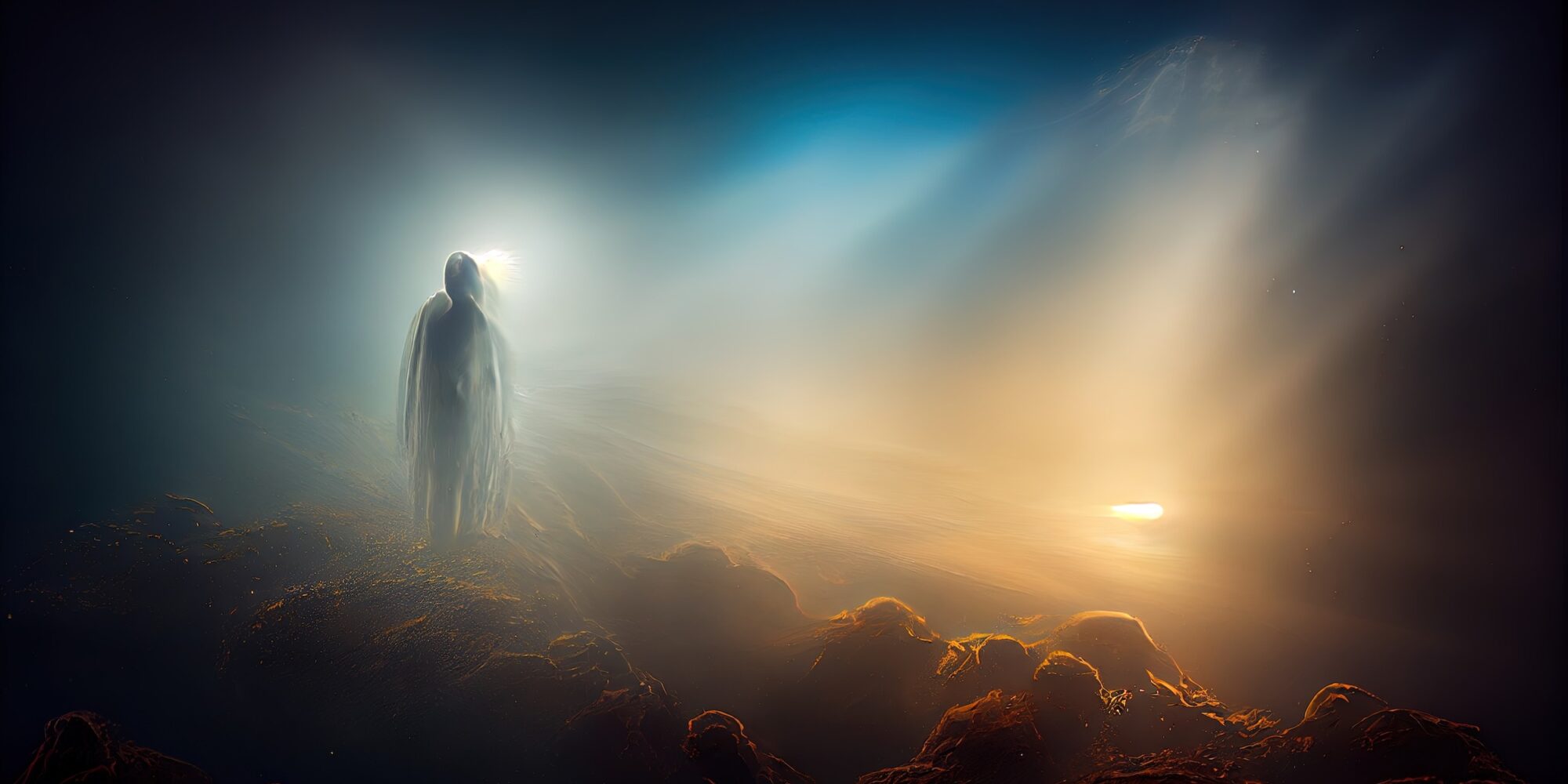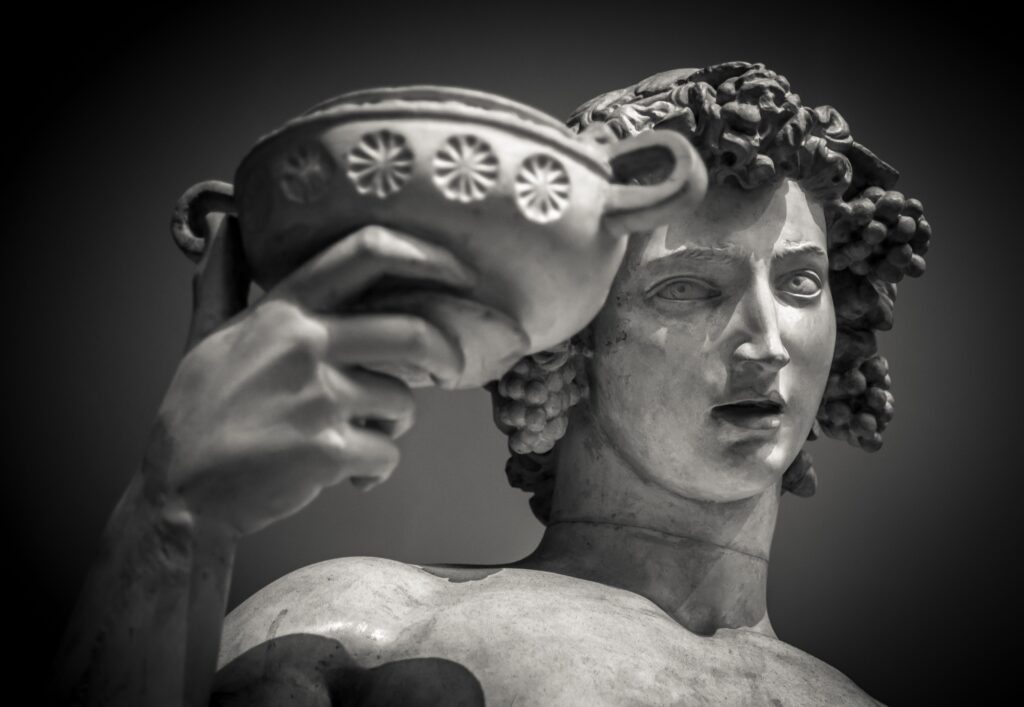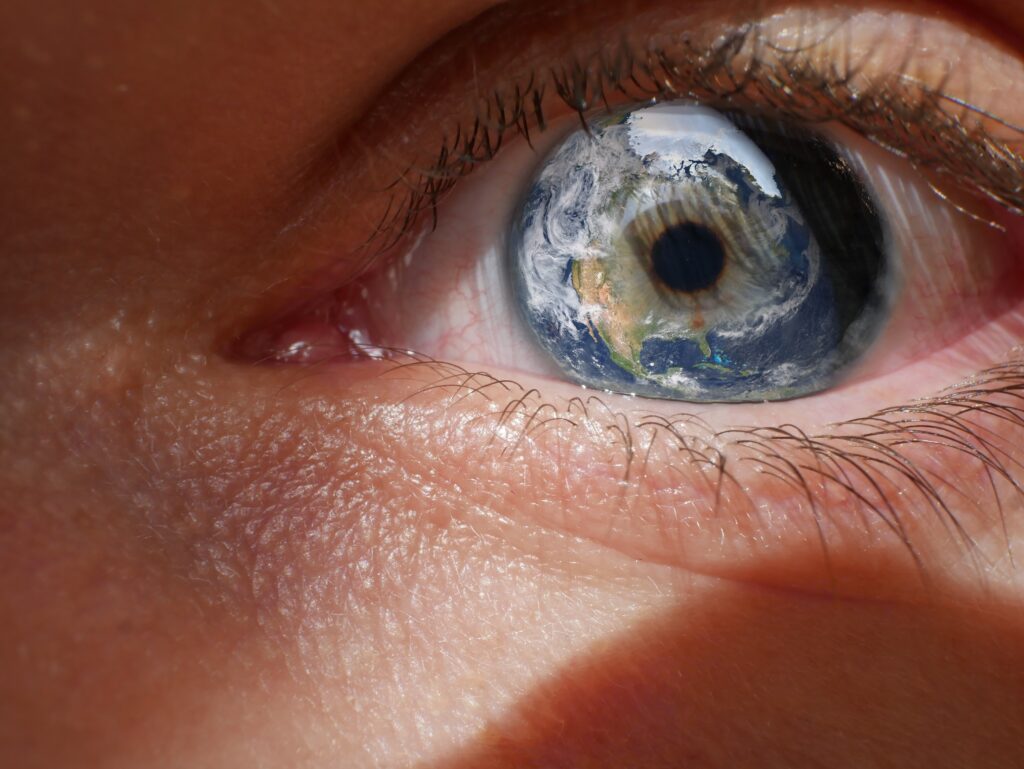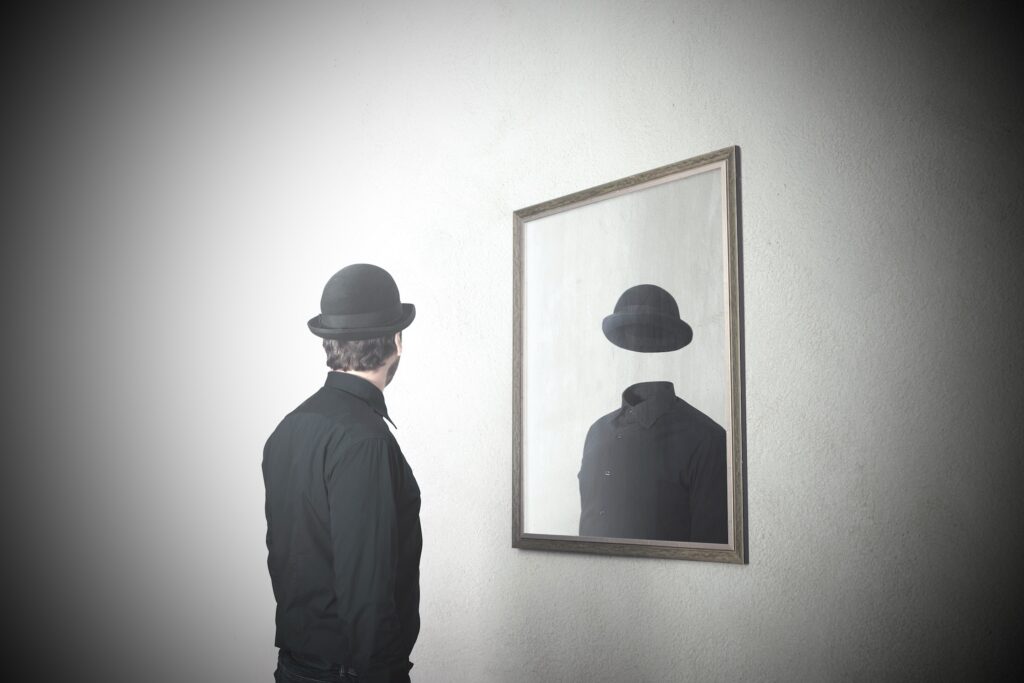The science of consciousness after death
Reading | Metaphysics
![]() Laleh K. Quinn, PhD | 2024-01-21
Laleh K. Quinn, PhD | 2024-01-21

When the results of observations and experiments designed to investigate the possible continuance of consciousness after bodily death are interpreted according to standard scientific criteria, they strongly indicate the reality of the hypothesis. We fail to acknowledge it because of metaphysical biases ingrained in our culture and, in particular, academia, argues Dr. Quinn.
There has never lived an honest soul who could tolerate the thought that everything ends with death, and whose noble sentiment did not rise to a hope for the future.
Immanuel Kant
Charles Howard Hinton, a brilliant mathematician living in the late 1800’s, believed in, and eloquently mathematically described, a fourth spatial dimension alongside our 3-D reality. That is not so odd in itself. What is odd about him is that he believed that, if we focused our attention enough on this spatial dimension, if we worked diligently at attempting to visualize it, we would directly encounter the “spirit world.” William James, the father of American psychology and well-known Harvard professor, attended seances and became president of the Society for Psychical Research, dedicating a large part of his life to understanding and proving the existence of parapsychological phenomena, describing it as “established fact.” Carl Gustav Jung, the founder of analytical psychology and one of the most impactful minds of the 19th and 20th centuries, also attended seances and believed in forces beyond those that constitute our normal reality, arguing for the existence, along with space, time and causation, of a fourth acausal force, “synchronicity.”
How could this all be? How could such brilliant, rational minds believe in things that are so seemingly irrational?
I believe it’s because they all had experiences that they couldn’t explain under the standard materialist understanding of the world. For Jung it was prophetic dreams and prima facie impossible synchronistic events, along with having a cousin who worked as a professional medium and for whom he had great respect. For James it was a deep curiosity into the world of mediumship, after having tragically lost his son. Surprisingly, even for him, after meticulously testing a well-known medium, Leonora Piper, the theory that mediumship is impossible was rendered false by his direct experience with the capacities of an extraordinarily accurate one. James called this his “white crow.” To disprove the hypothesis that all crows are black one only need discover a single non-black crow. Similarly, for James, to disprove the hypothesis that mediumship is false, one need only experience one extraordinarily accurate medium. Both James and Jung came away with a worldview that was much more mysterious than the dominant materialist understanding of reality allowed for.
We could pass all of this off as crazy. And a lot of my colleagues would. There is a deep adherence to a worldview among materialist academic intellectuals that disallows the continuation of consciousness after death. This is really a shame. It dictates that we are nothing but a body that houses a brain—the producer of our sense of self and all our experiences. Our hopes, our joys, our loves, our sense of beauty, all reduced to a series of computations performed by about 80 billion neurons and their patterns of connectivity. What a dull, lifeless account of the miracle we truly are.
This view was not always held on to so vehemently. There was a period of open-minded investigation into the nature of who we are among the intellectuals and scientists of the late 19th and early 20th centuries, when honest, respectful debating on the continuation of consciousness after death was the norm. But, like the politics of today, academia has become extremist, respect for alternate views has become scarce.
As a skeptical academic scientist myself, I was nonetheless always intrigued by those rare, highly intelligent people who held non-materialist positions. I was raised in the materialist academic tradition that poo-pooed anything having to do with the continuation of consciousness after death. Even though this was not possible on the worldview I was indoctrinated into, I still secretly devoured the words of those brave, iconoclastic voices. When I first read The Varieties of Religious Experience, by William James, I experienced a mixture of extreme joy coupled with anger. Joy because James was suggesting that mystical experiences were valid and worthy of exploration, pointing to the reality of a world unseen. And anger because my academic colleagues were dead set against even discussing such possibilities. Buoyed by my dead intellectual forebears, I fully immersed myself into the search for evidence that consciousness continues on after death; and the evidence is overwhelming: as strong, or even stronger, than for any of the scientific claims that I, as a neuroscientist, have encountered.
Here’s how I came to that conclusion. I decided to go about it in the way that I was trained to do as an academic. The scientific method requires several steps. First you must have an understanding of the existing knowledge within the field you’re interested in. This includes having a grasp of both the already existing data and the theoretical background. Then you perform scientific experiments in order to further the knowledge within the field. This involves both observational studies and the creation and testing of hypotheses. Good science also requires an open mind to observations that do not fit into current theory. The history of science is full of overthrown theories that were held onto just because people have a tendency to be adverse to change. We need to ensure we’re not throwing out observations just because they don’t fit into the current theoretical understanding; that’s how theories are modified and evolve.
As a neuroscientist, I attempt to discover how the brain functions, how different brain regions perform different tasks, and what the underlying neural signatures of different behaviors might be. This field is wide open. It’s like being an explorer, since so little is known. We all gather data and, if our techniques are sound, we present what we find, which adds to the growing corpus of understanding. We set up our hypotheses and test them. And, most importantly, we make observations with open minds, so not to be blinded by theoretical biases. Then, others may accept our findings; not as absolute truth, but as probable truth. That’s how a lot of science works.
I attempted to do the same with the hypothesis that consciousness continues after death, and I tried to do it as rigorously as I do my neuroscience research in the lab. Scientific exploration of a subject requires an understanding of the already extant data. And it turns out that, just like studying any other field in depth, there is a vast amount of literature and data on consciousness after death, which needs to be read and sifted through; a vast literature and huge corpus of data that I had no idea existed.
The information fell into a few different categories: personal accounts of near death experiences, gathered by researchers such as those at the Near Death Experience Research Foundation (NDERF) and the International Association for Near-Death Studies (IANDS); parapsychological research performed in research institutes such as William James’ own Society for Psychical Research, the American Society for Psychical Research, and the Institute of Noetic Studies (IONS); mediumship studies performed at laboratories such as the Windbridge Research Center and the Schwartz Laboratory at the University of Arizona; and departments devoted to the scientific exploration of parapsychological phenomena such as the University of Virginia’s Department of Perceptual Studies (DOPS). I studied it all, as if I was in graduate school again. For many years. The evidence is impossible to dismiss.
Armed with such plentiful evidence, I felt excitement and hope. But, as it turned out, even though my research unearthed an overwhelming amount of evidence, there was still something blocking me from taking that leap to full belief. I realized that I was still under the materialist stronghold that has always dictated to the rest of us what can be deemed real. To most of my academic colleagues, the phenomena I was researching was not possible and, therefore, not worthy of my efforts to study it. The continuation of consciousness after death is not possible for them because of their presumption of materialism, not because they have researched the topic and found the research to be faulty. Materialists who deny the continuation of consciousness after bodily death by and large have not looked into the phenomenon with any degree of rigor. Again, for them, it’s impossible a priori, so why would you research it? To do so is as worthless as dedicating one’s life to discovering whether the Easter Bunny is real; and as intellectually vacuous.
I recently watched an interview between Steven Pinker, a well-known and staunchly materialist Harvard professor, and Sadhguru, an Indian spiritual teacher. Their discussion was on the nature of consciousness. One of the questions raised was whether consciousness could survive bodily death. Pinker gave the standard materialist response: of course not. The brain is responsible for consciousness and, once the brain dies, consciousness dies. He stated his reasoning for that position: conscious experience always has a brain signature, which we can read out by using brain imaging techniques. And because we can do so, there can be no consciousness without our brains.
As a neuroscientist, I know full well how the brain and consciousness are tied together. Damage the brain, or infuse it with a hallucinogen, and consciousness is very impacted. Ask a subject when they are conscious of a stimulus and the brain acts differently from when they are not. Does this prove that the brain is the cause of our consciousness and that without it consciousness cannot continue? No. And the materialists know that. They only take it as proof because the alternative doesn’t conform to their belief system.
Pinker continued with the other side of the argument: he said, if it were true that consciousness survives death, then we should be able to have seances and communicate with the dead. But, he claims, “We all know now that this is flim flam, stage magic.” He continued with what he assumed is the final word on the matter: “Ask Aunt Hilda where she hid her jewellery. She should be able to tell you. If that happened I would believe that consciousness could survive the death of the brain. That has never happened and I would be able to bet a lot of money it never will.” I wish Pinker were serious here. For, if he were, I and many others could point him in the direction of people who would be able to do just that.
I don’t expect to have provided proof to anyone but myself through my investigation into the continuation of our consciousness after death. My hope is only to have shown that a rigorous path of exploration into the phenomenon points very strongly to that fact. The rest is up to you to do your own work and study for yourself, but understand that it is misguided to rely on the dictates of the materialists who have never bothered to perform the proper research on this topic. The truth is out there to be discovered with an open mind and open heart.

Essentia Foundation communicates, in an accessible but rigorous manner, the latest results in science and philosophy that point to the mental nature of reality. We are committed to strict, academic-level curation of the material we publish.
Recently published
Reading
Essays
Seeing
Videos
Let us build the future of our culture together
Essentia Foundation is a registered non-profit committed to making its content as accessible as possible and without advertisements. Therefore, we depend on contributions from people like you to continue to do our work. There are many ways to contribute.















